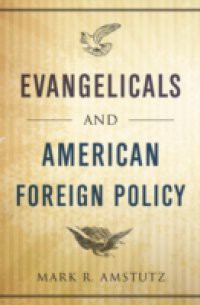Gallons of ink have been spilled in examining the influence of Evangelicals on American politics. Yet the conversation--among pundits, politicians, and scholars--has focused overwhelmingly on hot-button domestic issues, such as abortion and gay marriage. In Evangelicals and American Foreign Policy, Mark Amstutz looks beyond our shores at Evangelicals role in American foreign affairs. Writers have generally traced Evangelicals political awakening to the 1970s or, at the earliest, to World War II. But Amstutz digs deeper, arguing that Evangelicals were active in foreign affairs since at least the nineteenth century, when Protestant missionaries spread throughout the world, gaining fluency in foreign languages and developing knowledge of distant lands. They were on the front lines of American global engagement--serving as agents of humanitarianism and cultural transformation. Indeed, long before anyone had heard of Woodrow Wilson, Evangelicals were Americas first internationalists. In the postwar period, that expertise was put to more organized and sophisticated use, as Evangelicals sought to translate their belief that humans were created in Gods image into a core principle of American foreign policy. Amstutz explores how this principle has been put into practice on issues ranging from global poverty to foreign policy towards Israel, paying close attention to Evangelicals triumphs and failures on the global stage.

